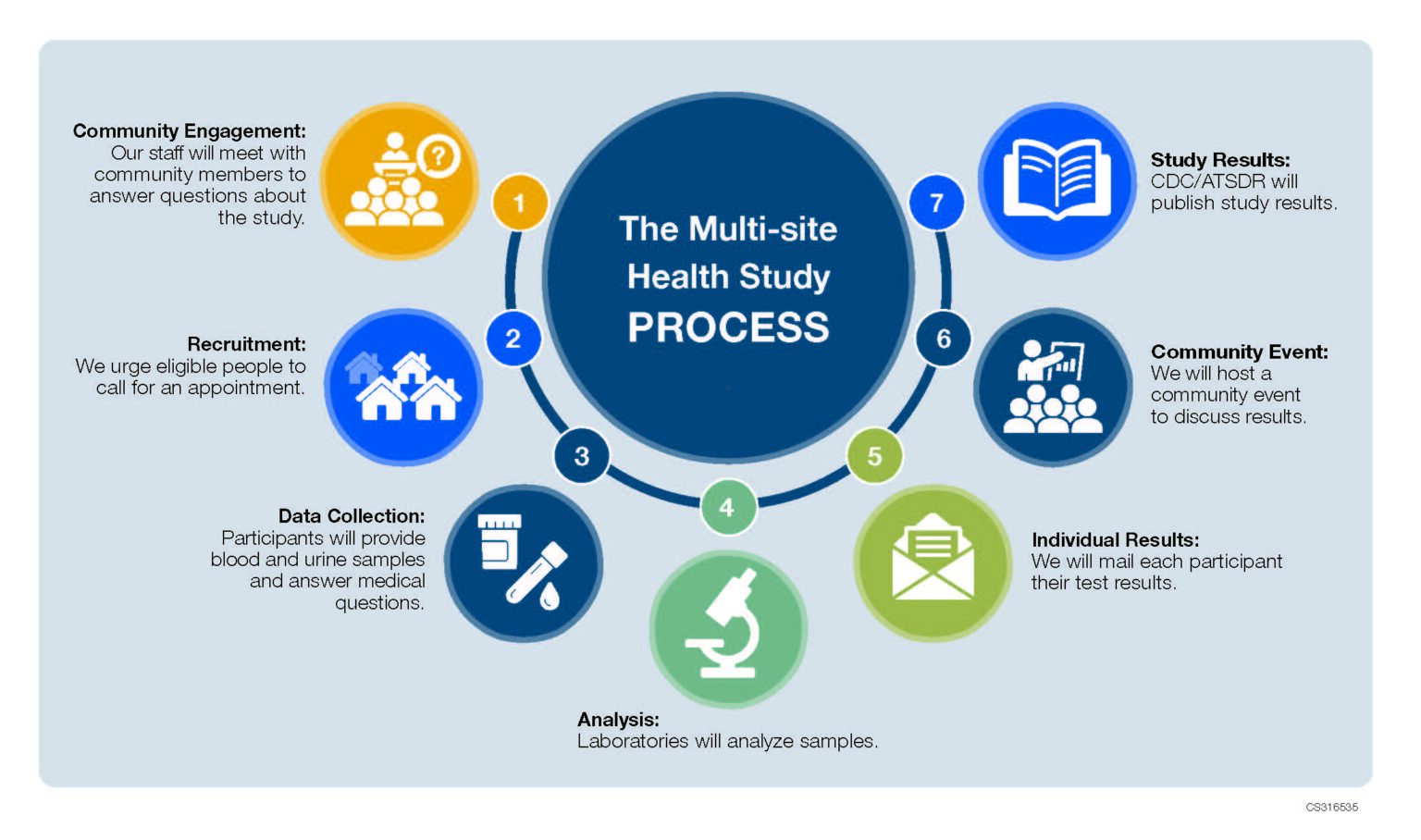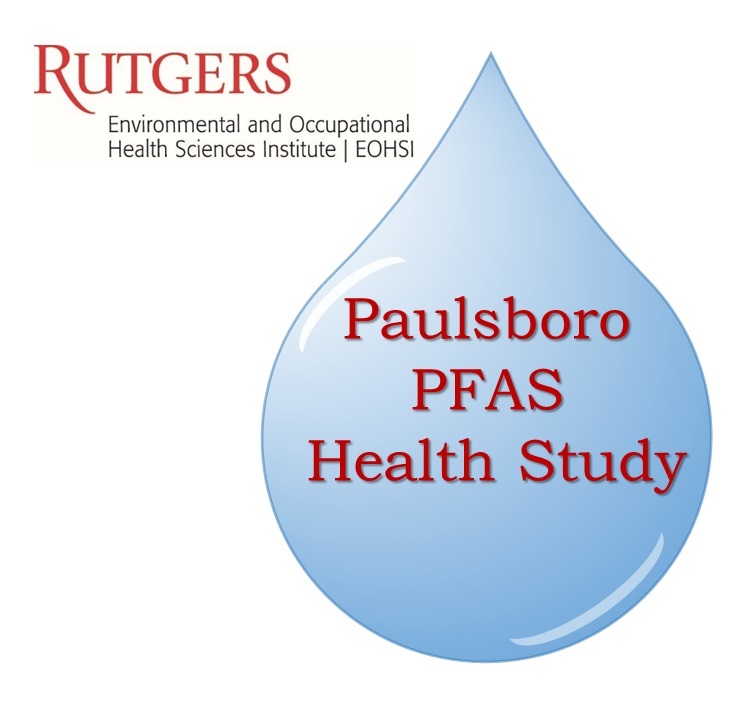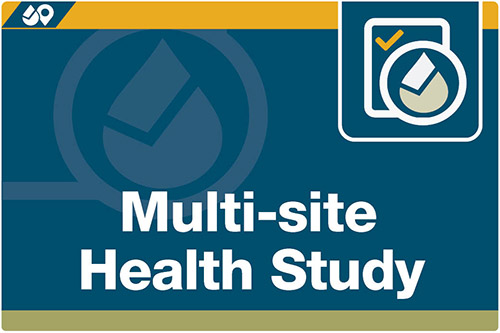Paulsboro PFAS Health Study
Drinking Water and Per- and Polyfluoroalkyl Substances
541B Mantua Avenue, Paulsboro, NJ 08066
The Paulsboro PFAS Health Study is Happening Now
The Rutgers Environmental and Occupational Health Sciences Institute will be studying the health effects from drinking water contaminated by PFAS (per- and polyfluoroalkyl substances) in Paulsboro, NJ and other sites in Gloucester County. The study is part of a multisite study conducted by the Centers for Disease Control (CDC) and Agency for Toxic Substances and Disease Registry (ATSDR) at 8 locations across the US. The Paulsboro PFAS Health Study is anticipated to begin in early 2021 with Rutgers Environmental and Occupational Health Sciences Institute and Rutgers School of Public Health.
.
- In 2009 and 2013, tests found high levels of PFAS, specifically perfluorononanoic acid (PFNA), in the drinking water from the Paulsboro Public Water System (PWS)
Who can participate in the Paulsboro study?
An adult aged 18 or older who lived in Paulsboro at any time from January 2005 to April of 2014.
A child aged 6 through 17 who has parent or guardian permission and who lived in Paulsboro at any time from conception to April of 2014.
May not be eligible if you worked in industry or were a firefighter, but please contact us to confirm.
What are the benefits of you joining us?
- Help health scientists to understand how PFAS affect health.
- Receive their individual test results, which they can share with their doctors to monitor their health.
- Up to $75 in gift cards for completing the study.
How are participant’s results handled?
- Rutgers, CDC, and ATSDR are careful to protect personal information and maintain privacy and confidentiality.
- Researchers will analyze test results to learn more about the possible health effects of PFAS exposure.
- After the study ends and results are analyzed, Rutgers, CDC, and ATSDR will share results as soon as possible and will write and share a report with the public.
What are opportunities for you to get involved?
A Citizen Advisory Panel (CAP) will be made up of a majority of residents of Paulsboro
The CAP members will:
- Support the mission of the study.
- Advise researchers on community environmental health concerns.
- Assist in translating research to be understood by the community.
- “Open doors” to the community by identifying appropriate partnerships.
- Give input in the planning of research that asks critical questions
Possible additional opportunities:
- Canvassing door-to-door, “neighbor-to-neighbor”
- Tabling at Community Events
- Environmental Health Leadership Training
- Small grant opportunities
What are PFAS?
PFAS are man-made chemicals that have been used in industry and manufacturing of consumer products since the 1950s, including some cosmetics; water, grease and oil-resistant products; and firefighting foam. The most commonly studied PFAS are perfluorooctanoic acid (PFOA) and perfluorooctane sulfonate (PFOS). Their production and use has been phased out in the United States. Other PFAS chemicals include PFNA, which was found in the drinking water in Paulsboro in 2009 and 2013. The contaminated well was shut down in April 2014 and reopened with filtration in June of 2016.
What are the possible health effects?
Health impacts of PFNA are less known, however some studies have shown that PFAS may:
- Adversely affect growth, learning, and behavior of infants and children
- Lower a woman’s chance of getting pregnant
- Interfere with the body’s natural hormones
- Increase cholesterol levels
- Affect the immune system
- Increase the risks for some cancers
We have much to learn about the potential health effects of exposure to PFAS, specifically PFNA
Why Paulsboro and what is the goal?
Paulsboro was selected for the study because residents were exposed to drinking water that contained PFAS.
The study will recruit community members to evaluate their PFAS blood levels and various health measures to learn how PFAS may affect health
We want to understand more about the health effects of PFAS because there is little known and some studies have shown that PFAS may be harmful.

Eye on Paulsboro - New Episode
Information about the Paulsboro PFAS Health Study being conducted by Rutgers University. Find out why it is important and how you can get involved! Also, the Tinicum Rear Range Lighthouse receives a gift from Century Savings Bank.
Additional Resources
For more information call or email:
856-599-1205
paulsboro-health-study@eohsi.rutgers.edu

Copyright © 2021, Rutgers, The State University of New Jersey



